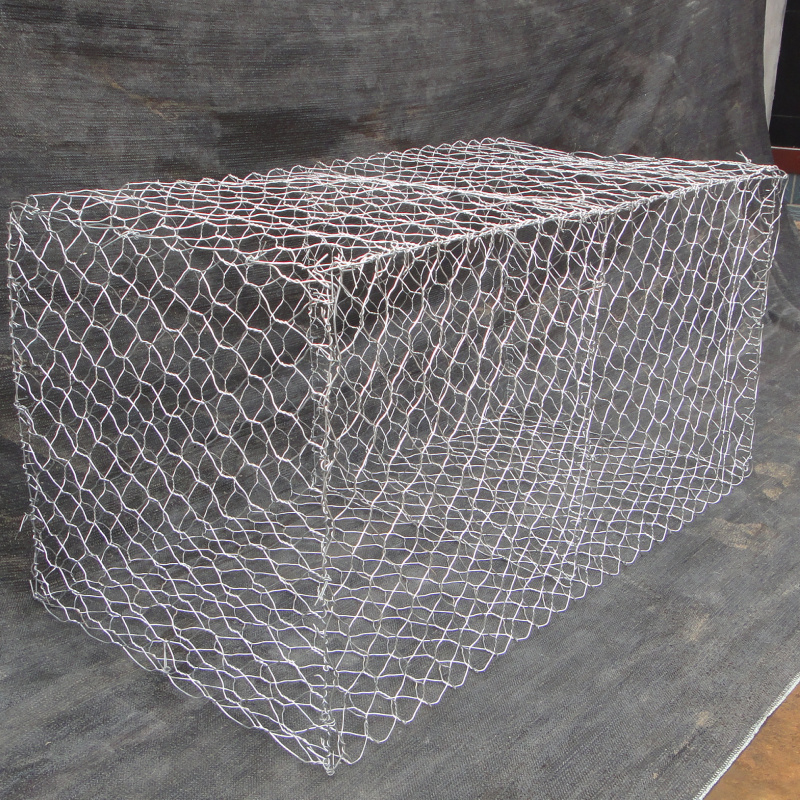Th11 . 12, 2024 18:43 Back to list
best gabion system
The Best Gabion System A Comprehensive Overview
Gabions, wire mesh containers filled with natural stones, are a versatile solution for a variety of civil engineering and landscaping applications. Known for their durability, aesthetic appeal, and environmental benefits, they have gained popularity in modern construction. In this article, we will explore the best gabion systems available, highlighting their features, benefits, and ideal applications.
What is a Gabion System?
A gabion system consists of wire mesh cages filled with rocks, concrete, or other materials to form structures such as retaining walls, erosion control barriers, and decorative elements in landscapes. They are typically made from high-quality galvanized steel or PVC-coated wire to ensure longevity and resistance to corrosion. These structures are often used to stabilize slopes, manage stormwater, and enhance the visual appeal of outdoor spaces.
Key Features of the Best Gabion Systems
1. Durability and Longevity The best gabion systems are constructed from robust materials that withstand harsh environmental conditions, including extreme weather, chemical exposure, and UV radiation. High-quality galvanization or coating significantly extends the life of the wire mesh.
2. Versatility Gabions can be designed in various sizes and shapes, accommodating a wide range of applications. From small decorative accents in gardens to large retaining walls for infrastructure projects, gabion systems adapt to numerous needs.
3. Ease of Installation Most modern gabion systems are designed for quick and easy installation. Lightweight yet sturdy panels allow for faster assembly, reducing labor costs and project timelines.
4. Drainage Properties Gabion structures naturally allow water to flow through them, thereby reducing hydrostatic pressure. This feature reduces the risk of water damage and erosion, making them an ideal choice for soil stabilization in wet conditions.
5. Aesthetic Appeal Available in different stone types and colors, gabions can blend seamlessly with the natural landscape or serve as striking focal points. Designers often use them to create visually appealing retaining walls, benches, and garden features.
Benefits of Using Gabion Systems
- Environmental Impact Gabion systems are an environmentally friendly option, utilizing natural materials that often require little or no processing. They also support local ecosystems by allowing vegetation to flourish in and around them.
best gabion system

- Cost-Effectiveness Compared to traditional construction methods, gabions are often more cost-effective due to lower material and labor costs. Their long lifespan also means less frequent replacement and maintenance.
- Erosion Control Gabion walls and other structures effectively prevent soil erosion, making them ideal for riverbanks, slopes, and coastal areas prone to degradation.
- Flexibility in Design Gabions can be configured in various ways, allowing for innovative designs that cater to specific site requirements and aesthetic preferences.
Ideal Applications for Gabion Systems
Gabion systems are suitable for various projects, including but not limited to
- Erosion Control Used extensively in civil engineering projects to stabilize banks, coastlines, and hillsides.
- Retaining Walls Providing support for elevated structures, roads, and gardens while enhancing the landscape's visual appeal.
- Sound Barriers Effectively reducing noise pollution in urban areas when built into walls or fences.
- Landscaping Features Serving as focal points in gardens, creating benches, pathways, and decorative walls.
Conclusion
In summary, the best gabion system combines durability, versatility, ease of installation, and aesthetic benefits, making it a popular choice in both construction and landscaping. Its cost-effectiveness and environmental advantages further solidify its status as a top solution for various applications. As our understanding of sustainable building practices grows, gabions are likely to become an increasingly important element in modern design and construction endeavors.
-
Visualizing Gabion 3D Integration in Urban Landscapes with Rendering
NewsJul.23,2025
-
The Design and Sustainability of Gabion Wire Mesh Panels
NewsJul.23,2025
-
The Acoustic Performance of Gabion Sound Barriers in Urban Environments
NewsJul.23,2025
-
Mastering the Installation of Galvanized Gabion Structures
NewsJul.23,2025
-
Gabion Boxes: Pioneering Sustainable Infrastructure Across the Globe
NewsJul.23,2025
-
Custom PVC Coated Gabion Boxes for Aesthetic Excellence
NewsJul.23,2025
-
Installation Tips for Gabion Wire Baskets in Erosion Control Projects
NewsJul.21,2025






